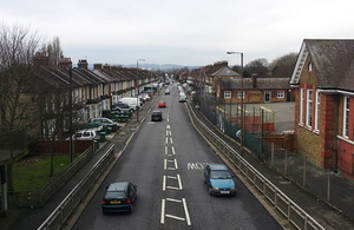Local authorities need to take a proactive approach to avoid falling behind as potentially game-changing digital innovation is applied on the strategic road network (SRN) and in large smart cities, council directors have warned.
The warning comes in a major new report on The route to the highways systems of the future from ADEPT, which represents local authority ‘place’ directors.

Local roads risk falling behind on digital innovation
It argues that while digital innovation has the potential to improve highways assets, network management and user experience, there is a real risk either that local networks will be left behind as activity takes place elsewhere or that the benefits will be delivered piecemeal.
The report proposes that to move from the current piecemeal and opportunistic innovation to a more structured approach, councils and local partners should develop a holistic system for knowledge sharing and scale-up.
At an event at the Palace of Westminster to launch the report, ADEPT president Simon Neilson said: ‘The future is coming very quickly. Each year, 180 million vehicle miles are travelled on our highways and nearly all journeys start on local roads. Local highway authorities around the country play a pivotal role in this future agenda.
‘However, we might be letting the side down as it stands.’
The report argues that realising the digitally-enabled highways system of the future is fundamental both to the future of highways asset management and as a major contributor to the success of the UK economy.
It points out however that while Government plans and strategies plan for technologies such as smart motorways and real-time user information to be rolled out on both the SRN and the forthcoming Major Road Network, they do not set out how digital innovation will be delivered outside these networks.
The report is intended to help those charged with finding solutions to this challenge. It finds that significant innovation is being trialled on local roads in some cities, sub-regions and communities, with a large public, private and non-governmental appetited for ‘smart city analysis and applications’.
It adds however that this is ‘too often fragmented, piecemeal, ad hoc, and project-by-project driven’ and that arrangements for replication and scaling up for consistent knowledge transfer from bodies like Highways England and Transport for London are ‘immature or not established at all’.
The report makes a number of recommendations to improve collaboration and knowledge transfer, which it argues will also accelerate cultural change ‘from highway engineering to place-based mobility and smart place outcomes’.
They include establishing a knowledge hub that would sponsor production of a series of good practice or ‘how to’ guides and toolkits and two proposals to provide examples of innovation at scale. The first of these would be a Garden Towns digital infrastructure platform to test advanced highways infrastructure in new settlements, while the second would be a retrofit maintenance demonstrator at scale.
Mr Neilson promised that ADEPT would be a champion for the proposals in the report, 'ready to take the lead to advocate radical changes in the construction, management and user experience of our highways'.
Register now for full access
Register just once to get unrestricted, real-time coverage of the issues and challenges facing UK transport and highways engineers.
Full website content includes the latest news, exclusive commentary from leading industry figures and detailed topical analysis of the highways, transportation, environment and place-shaping sectors.
Use the link below to register your details for full, free access.
Already a registered? Login